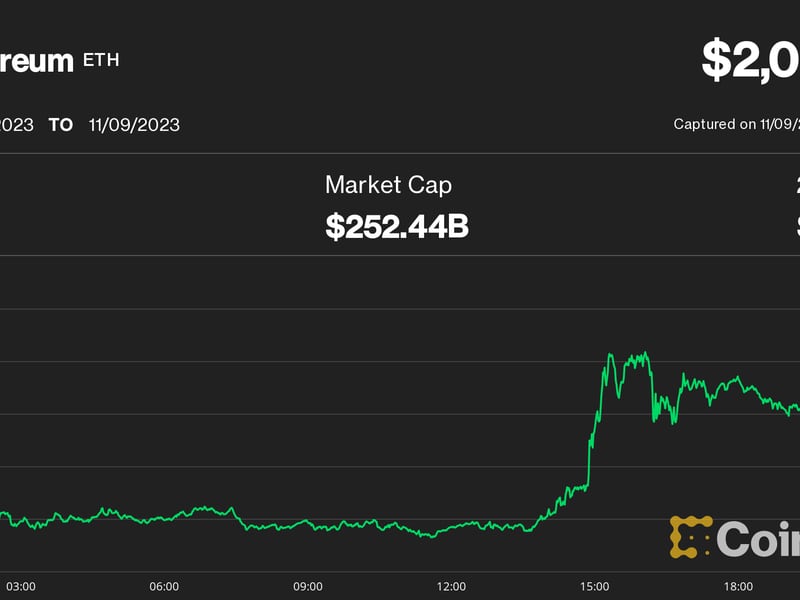Why Tornado Cash Remains the Most Pivotal Legal Case in Crypto
Good news emerged overnight for anyone who cares about the cause of privacy and about the threat of government overreach into our lives. The coders behind Tornado Cash, the mixing service at the center of a wide-ranging dragnet operation orchestrated by U.S. authorities, have raised more than $350,000 for their legal defense. NSA whistleblower Edward Snowden has given his support and you can raise the fund higher by participating at wewantjusticedao.org.
This is an excerpt from The Node newsletter, a daily roundup of the most pivotal crypto news on CoinDesk and beyond. You can subscribe to get the full newsletter here.
A little recap of the case and why it matters:
In August 2022, Dutch authorities
arrested Alexey Pertsev
, co-developer of Tornado Cash, an open-source mixer on the Ethereum blockchain that allows users to hide their identity when transacting crypto. A second developer, Roman Storm, a dual U.S. and Russian citizen, was arrested on similar charges in Washington state last summer. A third developer, Roman Semenov, also faces money laundering and sanctions violations charges, but he has yet to be arrested. U.S. authorities claim the mixer has been used to launder more than $1 billion, including millions of dollars stolen by the infamous Lazarus hacking group sponsored by North Korea.
“2024 is the year that will define the rest of my life,” said Storm on X (formerly Twitter), announcing the funding plea. “Honestly, I’m scared. But also hopeful that this community cares with a passion. Please donate towards my legal defense.”
Snowden, who rose to prominence after he exposed numerous then-secret global surveillance operations, asked people to support the Tornado creators and added that “Privacy is not a crime.”
Indeed, it is not. We should have the right to transact freely online, whether it’s to communicate with words or to exchange value in the form of crypto. The operation against Tornado supposes that all money sent through a mixer is necessarily dodgy, when, in all likelihood, only a portion of the $1 billion was laundered and sent to North Korea. Vitalik Buterin, for instance, used Tornado to send funds in support of Ukraine (presumably because he didn’t want to make that donation public).
In effect, as my colleague Dan Kuhn
noted
adroitly last year, the U.S. government is sanctioning innocent coders in an effort to carry out a national security operation. “So far unable to actually persecute North Korea itself or bring to justice any suspected hackers – who are thought to be funding the wayward country’s nuclear missiles program, no less – the U.S. government is making an example out of a couple cryptocurrency coders,” Kuhn said.
But the Tornado case is about more than privacy and even government overreach. It’s about whether governments should be able to stop transactions over open-source protocols that nobody controls. The reality of this, ironically, is proven by the very case itself. Even if Pertsev, Storm and Semenov go to prison for a dozen years, the smart contracts they created will still operate, just like Bitcoin continues to operate without a CEO or recognized founder.
Authorities here claim that code creation means coders are responsible for everything that happens using that code. This isn’t and cannot be true. If it was, then the creators of, say, Gmail, would be responsible for every message of hate and violence sent over that service. In fact, the creators of Tornado decided to
smash their keys
way back in 2020, relinquishing their ability to control the use of the code they are supposed to be responsible for. They are being prosecuted for something they cannot do anything about.
The new legal defense campaign received support from prominent handles on X, including
Pablo Sabbatella
, of security firm Blockfence,
Ameen Soleimani, the founder of SpankChain
, and
Ryan Sean Adams, co-founder of Bankless
. Adams put the case for supporting the Tornado dissidents best: “People think this a battle for crypto – it’s not. It’s a battle for our fundamental freedom to write software and keep our data private. We lose this, maybe they come for https next.”
Edited by Daniel Kuhn.









